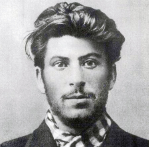|
Malkina_ posted:Only a matter of time before they ban marx, engels, etc order your copies while you still can Oh god, will we know how much linen shirts cost a hundred years ago or which long-dead theorist another long-dead theorist was mad on at a particular date? The revolution will crumble!!
|
|
|
|

|
| # ? May 25, 2024 13:24 |
|
Come on though, state leadership wouldnt just say "who needs access to all that knowledge anyway?" if the people threatened to destroy all their military, political and economic theory and prevent any more from being released.
|
|
|
|
On a scale of one to one hundred how many words of Adam Smith has the average ceo read
|
|
|
|
CEOs don't have to read any of it, their servants do it for them. Of course, Adam Smith isn't a great example since he's only relevant through cherry-picking anymore, but substitute him for Walras or Friedman and you get practical: their writings are still relevant instructions on how to organize society. Most CEOs haven't read either of the two, yet removing their writings from modern canon would earn you their burning hatred.
|
|
|
|
NED's long-serving president (since April 30, 1984[24]) is Carl Gershman, former Senior Counselor to the United States Representative to the United Nations and former Executive Director of Social Democrats USA.[25][17] lol
|
|
|
|
T-man posted:Oh god, will we know how much linen shirts cost a hundred years ago or which long-dead theorist another long-dead theorist was mad on at a particular date? The revolution will crumble!! On second thought you’re right, they don’t even need to ban socialist ideas when this poo poo has already destroyed american’s ability to understand what fascism is or even how power itself works altogether
|
|
|
|
comedyblissoption posted:NED's long-serving president (since April 30, 1984[24]) is Carl Gershman, former Senior Counselor to the United States Representative to the United Nations and former Executive Director of Social Democrats USA.[25][17] What better place for a social democrat USA than a National Endowment for Democracy, after all. It's nationalized, it's democracy... it's right there in the name.
|
|
|
|
T-man posted:On a scale of one to one hundred how many words of Adam Smith has the average ceo read Zero, but they know a bunch of poorly paraphrased quotes they can use to justify their behavior.
|
|
|
|
lol at the idea a ceo would own any books they haven't hollowed out to store hard drugs in
|
|
|
|
why would I need to read Marx, I've already spent thousands of hours shitposting about Revolution.
|
|
|
|
Atrocious Joe posted:why would I need to read Marx, I've already spent thousands of hours shitposting about Revolution. hes fun and does good owns
|
|
|
|
The labour of the free peasants on their common land was transformed into corvée for the thieves of the common land. This corvée soon developed into a servile relationship existing in point of fact, not in point of law, until Russia, the liberator of the world, made it legal under pretence of abolishing serfdom. The code of the corvée, which the Russian General Kisseleff proclaimed in 1831, was of course dictated by the Boyards themselves. Thus Russia conquered with one blow the magnates of the Danubian provinces, and the applause of liberal cretins throughout Europe.
|
|
|
|
The labour of the free peasants on their common land was transformed into covfefe for the thieves of the common land.
|
|
|
|
if books and pamphlets were sufficent enough to start a revolution we'd have had more of them and trots would be successful do you think we live in a world where trots are successful? qed
|
|
|
|
were pretty successful yeah
|
|
|
|
T-man posted:do you think we live in a world where trots are successful?
|
|
|
|
the trots were very successful, who do you think shaped american foreign policy over the last 40 years
|
|
|
|
mila kunis posted:hes fun and does good owns marx was a very prolific shitposter and therefore an inspiration to us all
|
|
|
|
i post from the heart, not the false teachings of idols
|
|
|
|
T-man posted:i post from the heart, not the false teachings of idols
|
|
|
|
THS posted:the trots were very successful, who do you think shaped american foreign policy over the last 40 years lol
|
|
|
|
THS posted:the trots were very successful, who do you think shaped american foreign policy over the last 40 years it's funny cuz its true
|
|
|
|
THS posted:the trots were very successful, who do you think shaped american foreign policy over the last 40 years
|
|
|
|
I was reading about the right of discovery being based on a “papal bull” (whatever the gently caress that means) from the 1500s and that got me wondering what communist jurisprudence is based on? or even what the role of courts are in a communist context. my familiarity with the subject includes the courtroom scene of hit hbo miniseries chernobyl starring jared harris
|
|
|
|
The role of tribune is to punish the enemies of the people
|
|
|
|
|
Centrist Committee posted:I was reading about the right of discovery being based on a “papal bull” (whatever the gently caress that means) from the 1500s and that got me wondering what communist jurisprudence is based on? or even what the role of courts are in a communist context. my familiarity with the subject includes the courtroom scene of hit hbo miniseries chernobyl starring jared harris The role of the courts in a communist society would be to resolve interpersonal conflicts, of which many would remain even in the absence of class conflict. But the structure of an ideal communist court system would probably look radically different from the US legal system
|
|
|
|
T-man posted:if books and pamphlets were sufficent enough to start a revolution we'd have had more of them and trots would be successful neocons control US foreign policy so yes trots are successful
|
|
|
|
vyelkin posted:marx was a very prolific shitposter and therefore an inspiration to us all marx slept on the couch all day then spent hours writing before going back to sleep. a true goon
|
|
|
|
Centrist Committee posted:I was reading about the right of discovery being based on a “papal bull” (whatever the gently caress that means) from the 1500s and that got me wondering what communist jurisprudence is based on? or even what the role of courts are in a communist context. my familiarity with the subject includes the courtroom scene of hit hbo miniseries chernobyl starring jared harris https://www.marxists.org/archive/pashukanis/1924/law/ is often brought up, although I only remember the gist of it and my take won’t totally represent it. Long story short, the jurisprudence of a society is a superstructural expression of the concrete social needs within it. The existing court system is based on the need to regard people as free-willed individuals with individual responsibilities for the needs of an exchange-based society. Socialism and lower stage communism necessarily conceive individuals much the same way as capitalist society does, they must have definite individual rights and individually earn things according to those rights. Maybe lower stage communism does away with the need for civil courts by making individuals economically engage with the public rather than each other directly, but crime against the public (by assaulting the rights system somehow) is still possible and people have personal incentives to do it (e.g. getting stuff they didn’t earn according to the rules). The point of punishment starts getting blurred though, like there’s no need for the public to enter disputes between individuals as some kind of wrathful angel of justice only capable of threats and violence. The public names the terms of how individuals get to engage with society in their everyday lives, not just within some artificial prison system complex. It has all kinds of levers that it can pull to reform people and protect itself from them that are going to be much more effective than prison systems of old, and could soon enough render them obsolete. For example, a person with certain bad tendencies can be offered a position in society that keeps them safe from them without the position having to be a punitive one. We already scientifically know this usually leads to better social outcomes than punishment, class society just doesn’t care about social outcomes that don’t serve or hurt its ruling classes. Higher stage communism, as imagined, would disrupt the whole conception of responsible individuals in a way that would probably make the idea of jurisprudence seem senseless. It would be a society where the moral conception of earning and deserving things couldn’t really be there as we imagine it, so why would someone earn some kind of pre-defined punishment for doing specific undesirable things either? Localized custom or policy that has little to do with our idea of ”justice” starts making far more sense than universalized law.
|
|
|
|
Top City Homo posted:neocons control US foreign policy Is this a lyndon larouche joke? IDGI
|
|
|
|
LittleBlackCloud posted:Is this a lyndon larouche joke? IDGI https://en.m.wikipedia.org/wiki/Irving_Kristol https://en.m.wikipedia.org/wiki/Seymour_Martin_Lipset https://en.m.wikipedia.org/wiki/Nathan_Glazer it’s a whole thing. basically a small group of trotskyists ended up forming the intellectual basis of neoconservatism and had an incredibly outsized influence on american foreign policy it’s unfair to paint every trotskyist with this brush, as this was a very specific group of intellectuals who all knew eachother - but it is still very funny and eyebrow raising. i think ultimately the impression is that being vehemently anti-soviet and seeing foreign powers, actually existing communism, etc as the Greater Evil compared to their warped perception of American liberal “democracy” as the only alternative in a global ideological battle leads you to a pretty narrow choice of what you can advocate for as an ambitious, career focused intellectual
|
|
|
|
Intellectual more like cowardpigdogloserectual
|
|
|
|
THS posted:https://en.m.wikipedia.org/wiki/Irving_Kristol Have any trotskyist or adjacent people rehabilitated the USSR? I'm sympathetic to some of what I know about Trotksy(ists), but like even Kerensky supported ussr during WW2.
|
|
|
|
LittleBlackCloud posted:Have any trotskyist or adjacent people rehabilitated the USSR? I'm sympathetic to some of what I know about Trotksy(ists), but like even Kerensky supported ussr during WW2. Rehabilitated in what sense? If someone adopts the line 'actually the USSR was socialist until [some point after Trotsky was kicked out]' then they've basically moved into being a Marxist-Leninist-Stalinist and so are using a non-Trotskist framework for making that statement. Trot groups themselves have a few answers about what the USSR actually was with varying attitudes towards it but none of them positive about the leadership.
|
|
|
|
uncop posted:https://www.marxists.org/archive/pashukanis/1924/law/ is often brought up, although I only remember the gist of it and my take won’t totally represent it. that’s really interesting, sorry I can’t meet effort with more than that
|
|
|
|
if you understand the role of police and prisons in the maintenance of the state, you understand that all prisoners are political prisoners. this doesn't actually mean that a worker's state won't ever have need of holding political prisoners, but it does mean that "crimes" of interpersonal harm or delinquency (as opposed to, like, sedition or espionage) should provoke a compassionate investigation into what still-existing societal problems have caused someone to act out rather than vindictive torture
|
|
|
|
namesake posted:Rehabilitated in what sense? If someone adopts the line 'actually the USSR was socialist until [some point after Trotsky was kicked out]' then they've basically moved into being a Marxist-Leninist-Stalinist and so are using a non-Trotskist framework for making that statement. From like a critical support angle.
|
|
|
|
trot "support" of the ussr amounts to arguing vociferously that it was a degenerated worker's state rather than a deformed worker's state or a bureaucratic collectivism or an oriental despotism or whatever other stupid term of art, and of loudly hoping that its government fall to a coup
|
|
|
|
its a lot less useful to ask what trotskyists thought of or said about anything than it is to ask what a specific group or party thought or said about something, or just individuals. for example trotsky argued that the USSR was always a workers state, but that the leadership had become bad and so while the social revolution was successful a political revolution would be necessary in order to prevent the state from reverting to capitalism. if you look at the time of the fall of the USSR and some of the larger trotskyist organizations for example, the SWP argued that this would be a good thing for the labor movement that the USSR fell, the CWI argued that it would be a catastrophic setback. it comes down to 2 separate views of the nature of the USSR, with the SWP being that the USSR was "state capitalist" while the CWI held more or less the continuation of the idea that the USSR was a workers state but with a leadership which could not prevent capitalist restoration. its also pretty weird and insane to see people poo poo all over the idea of a degenerated workers state because thats quite literally the situation on a smaller scale of the major trade unions in the US today. the leaderships are almost completely opposed to advancing a revolutionary labor movement and organization with a couple of notable exceptions. its more or less the same situation in the USSR with the leadership actively working to prevent the advancement of labor struggles but on an international scale. socialists still support the unions and their membership in their struggles against management, just not necessarily the leadership if that leadership is misguided or failing. similarly you still support the USSR against capitalist restoration or conflict, but not necessarily the leadership if their leadership is mistaken or failing.
|
|
|
|

|
| # ? May 25, 2024 13:24 |
|
LittleBlackCloud posted:Have any trotskyist or adjacent people rehabilitated the USSR? I'm sympathetic to some of what I know about Trotksy(ists), but like even Kerensky supported ussr during WW2. The man himself was critically supportive of the USSR as a project in exile, but clearly he had issues with its management and direction under Stalin
|
|
|





























